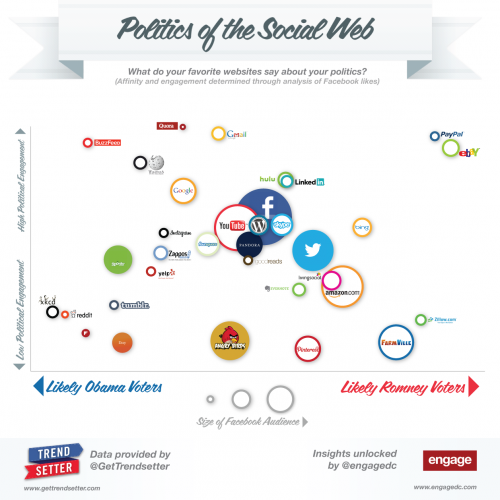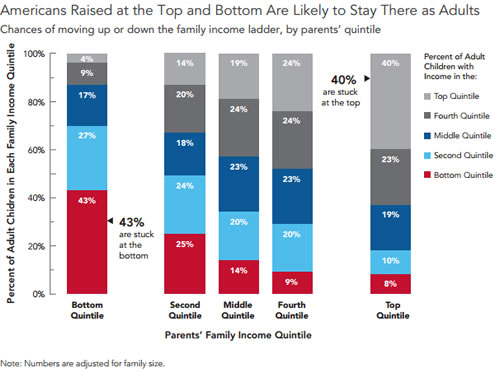And folks, it would be legal. Here's what you need to know to understand the plan:
■ The Electoral College elects the president, not the American people.
■ Each state sends "electors" to the Electoral College based on a formula determined
by that state via its legislature (plus the governor, who has to sign the bill).
■ Most states have a winner-take-all system of allocating Electoral
College votes. The candidate who "wins the state" wins all Electoral
College votes for that state.
■ The number of electors per state = the number of congressional
districts (one for each district) plus two (one for each senator).
■ Because of the gerrymandering of congressional districts, it's
possible for one party to dominate the state vote generally, but for the
other party to win more congressional seats.
See where this is headed?
Did I mention that each state legislature determines how its Electoral
College votes are allocated? (I think I did.) Did I mention that many
state legislatures and governors' palaces are dominated by radicals devoted to constitutional coup? (Not yet.)
See where this is headed? Your constitutional coup in action.
From the good Nick Baumann at
Mother Jones, an article last September:
The repugican's Genius Plan to Beat Obama in 2012
The repugican state legislators in Pennsylvania are pushing a scheme that,
if repugicans in other states follow their lead, could cause President
Barack Obama to lose the 2012 election—not because of the vote count,
but because of new rules.
That's not all: There's no legal way for Democrats to stop them.
The problem for Obama, and the opportunity for repugicans, is the
electoral college. Every political junkie knows that the presidential
election isn't a truly national contest; it's a state-by-state fight,
and each state is worth a number of electoral votes equal to the size of
the state's congressional delegation. (The District of Columbia also
gets three votes.) There are 538 electoral votes up for grabs; win 270, and you're the president. ...
Currently, 48 states and DC use a winner-take-all system in which the
candidate who wins the popular vote in the state gets all of its
electoral votes.
[But under] the repugican plan—which has been endorsed by top repugicans in
both houses of the state Legislature, as well as the governor, Tom
Corbett—Pennsylvania would change from this system to one where each congressional district gets its own electoral vote. (Two electoral votes—one for each of the state's two senators—would go to the statewide winner.)
If you — and by "you" I mean repugicans, because you Democrats only play not to lose — have no conscience about how to win, because
you have a note from jesus in your wallet ... well, all you need to do is subvert the popular vote by dominating the Electoral College.
Thus if you — soulless repugicans, of course — own all elements of
state government involved in redistricting, you can win that state for
Mitt Romney.
Or for any other wingnut retainer you wish to elevate to
the throne. For as long as you wish to. (Unless Democrats decide to stop
losing and change the rules back, but that's a different problem.)
This is what Baumann calls the "
redistricting trifecta" — both houses of the state legislature and the governor's box. That's all it takes to execute this plan.
Can it work? Baumann again:
This could cost Obama dearly. ... Pennsylvania repugicans
get to draw the boundaries of the state's congressional districts
without any input from Democrats.
Some of the early maps have leaked to the press, and Democrats expect
that the Pennsylvania congressional map for the 2012 elections will have
12 safe repugican seats compared to just 6 safe Democratic seats.
So Obama could win the state, and lose 12 of Pennsylvania's 18 electoral votes.
Besides Pennsylvania, three more large states — Michigan, Ohio, and
(perhaps) Wisconsin — are in play for this manœuver; the repugican
constitutional coup is well under way in those states, and Obama took
all three in 2008 (back in those old-school winner-take-all days).
Depending on the closeness of the election, this move could definitely swing it.
What's the remedy? According to the article: "For now, the Democrats'—and Obama's—only real way of fighting back is political."
Not exactly leading with our strength, is it.
Watch for this move — I'd be shocked if they didn't try it everywhere they can.
Side note — As I watch this rolling coup, and also watch
heart-rending videos of "ordinary Americans" on the losing end of the
battle against the corp-enabled CEO Class, I'm torn by sadness, mixed
with other feelings.
On the one hand, the pain is palpable. It hurts to see one's fellows go
down hard. I always keep fighting, but this one we could seriously lose.
And if we lose, we will all lose.
On the other hand, I can't keep myself from asking — Which of these
suffering "ordinary Americans" voted for Reagan, for either Bush, for
McCain? For Wisconsin's Scott Walker?
Which of them lived with their girlfriends while hating the hippies?
It is a puzzlement, these emotions. I confess to all of them.






 You'd
be excused if you're feeling a bit anxious given today's economic outlook,
but worrying has become a popular pastime for many Americans, even in
good times.
You'd
be excused if you're feeling a bit anxious given today's economic outlook,
but worrying has become a popular pastime for many Americans, even in
good times.

 Carnegie
Mellon professor has developed a retinal prosthesis that restores sight
to the blind:
Carnegie
Mellon professor has developed a retinal prosthesis that restores sight
to the blind:
 If
the thought of a math test has you breaking out in sweats, you'd be glad
to know that it's actually a medical condition called "mathemetics
anxiety" and that you're not alone.
If
the thought of a math test has you breaking out in sweats, you'd be glad
to know that it's actually a medical condition called "mathemetics
anxiety" and that you're not alone.
 Model
and photographer Indrani Pal-Chaudhuri leads a charmed life of luxury,
fame, and jet-setting. Yet she turned her 300-room ancestral mansion in
India into a school for poor children, with special emphasis on boosting
the potential of girls.
Model
and photographer Indrani Pal-Chaudhuri leads a charmed life of luxury,
fame, and jet-setting. Yet she turned her 300-room ancestral mansion in
India into a school for poor children, with special emphasis on boosting
the potential of girls.






 Why
do dogs love to chew bones? Because they've got the jaws to do it, a new
research studies confirmed. Joao Munoz-Doran of the National University
of Colombia explains:
Why
do dogs love to chew bones? Because they've got the jaws to do it, a new
research studies confirmed. Joao Munoz-Doran of the National University
of Colombia explains: Want
to live longer? The good news is that all you have to do is move about
50 miles. The bad news? Straight up into space.
Want
to live longer? The good news is that all you have to do is move about
50 miles. The bad news? Straight up into space.


